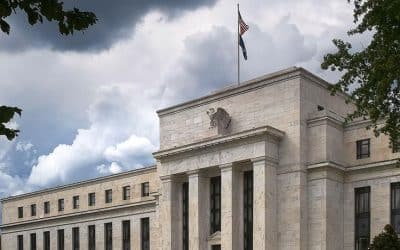Emerging Markets in Check by Covid-19

Redacción Mapfre
The coronavirus crisis has shown a world at different speeds: throughout the first half of the year, the vaccination campaign, fiscal stimulus or health measures to minimize the effects of the pandemic have been uneven across countries, and even more so between continents. As a result, the more developed regions have been able to gradually reopen their economies, providing a temporary respite for the sustainability of the system.
Beyond the first phase of Covid-19, resilience has been stronger in countries with less financing needs and with a trade account in surplus boosted by the rebound in commodity prices. According to the latest Economic and Industry Outlook Report: Fourth Quarter Perspectives, these factors are likely to cause a divergence in regions with a weaker grip on the pandemic and an economy that is highly dependent on external sources. However, the states with the highest degree of integration into global supply chains, and accompanied by a recovery in external demand, benefited from the reactivation of the economy.
This has highlighted the vulnerability of emerging countries whose factors associated with macroeconomic strength or fiscal saving have served as differentiators in addressing high levels of public spending and indebtedness. The Emerging Risk Index (ERI), developed by the MAPFRE Economic Research, highlights this point saying that "the weaknesses that will affect the development of the stability of emerging countries for this year and next, showing also the differential effects produced by the economic disruption caused by the pandemic."
THE REGIONS MOST AFFECTED
Many of the emerging markets analyzed have been adversely affected by COVID-19, especially in South America. In summary, Argentina, with an ERI of 67.89 points (the index is considered very high risk when the figure falls between 70 and 40 points), is the region considered most vulnerable, although factors such as "the recovery in economic activity, the favorable external debt negotiation process or the positive results in the current account" have served as a counterweight to the current context. However, the report also notes that the country has "limited access to foreign debt, currency instability and the need to rebalance its budgets." The Turkish economy is at a similar level, which is also attributed to high inflation and a failure to channel investment to the private sector.
The reality is that the situation in Argentina is only one of many that have been replicated in other areas of the continent, such as Colombia, where risks have gone up by registering a current account deficit and after the failure of its tax reform. In this line, redirecting its gaze to the European continent, Russia showed a slight setback in the ERI compared to the last report, where the main concern stems from the "deterioration of the average credit of its financial system in terms of NPLs (Non-Performing Loans)," say experts from Economic Research.
In the end, the evolution of the Emerging Risk Index confirms that the situation is not yet under control. To minimize cyclical risks and to regain pre-pandemic activity, the vast majority of the countries in the report must address the issue and resolve the problems that are hindering their economies.



